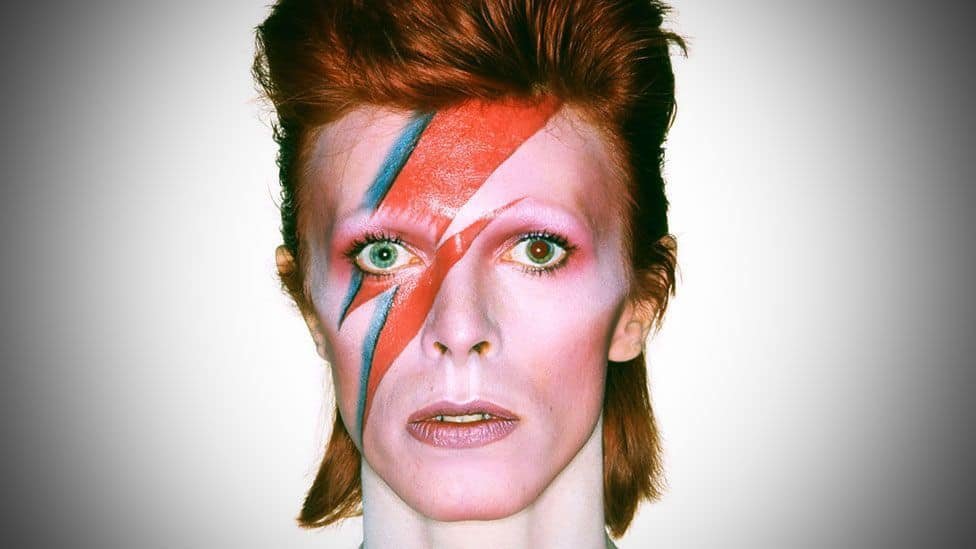
Exploring the historical significance of various artists within the LGBTQ+ community
Music and sexuality are two forces in the universe that are far more intertwined than many have ever come to realise. The theatre initially gave closeted queer people an outlet for their eccentricities for centuries, often in time periods where they were otherwise forced to keep their true identity hidden in the shadows. At the turn of the 20th century, prominent black musicians such as Ma Rainey and Bessie Smith dared to become the first to subtly reference their own queer identities in their music. The lyrics to a 1928 song by Rainey, ‘Prove it on me Blues’, reads “I went out last night with a crowd of my friends, it must’ve been women, ’cause I don’t like no men.” If this wasn’t confirmation enough, Ma Rainey had to be bailed out of jail for hosting a queer orgy in 1925!
As a gay man myself, I was astounded upon researching just how much these extraordinarily talented black women did for the queer community and yet, they are mostly forgotten by history books in favour of white artists who, infuriatingly, are credited as being ground-breaking simply for their ally ship. I took it upon myself to examine both queer artists and allies that deserve more (or less) recognition in the LGBTQ+ community.
Bessie Smith
The Empress of the Blues herself, Bessie Smith, was commonly acknowledged as bisexual by those in her life. Both Smith and her husband resorted to infidelity in their turbulent marriage, however the blues singer would have relationships with the same sex, often the dancers she travelled with. Ma Rainey was a mentor to Smith and although the claims are for the most part unsubstantiated, it is heavily rumoured that the two greats had a romantic relationship also. Although she never recorded the track, Smith allegedly would sing “The Boy in the Boat” at live shows, a track with lyrics alluding to a lesbian relationship, “When you see two women walking hand in hand, just look ’em over and try to understand: They’ll go to those parties—have the lights down low—only those parties where women can go.”
Big Mama Thornton
It is often misunderstood what it means to be a ‘queer’ person and Big Mama Thornton is perhaps the best example of somebody who wasn’t openly announcing her sexual endeavours, but her identity instead emerged in the way in which she conducted herself. Thornton, the original singer of ‘Hound Dog’ before it was taken by Elvis Presley (from which she never earned a dime), often presented herself with a masculine demeanour, she was a woman that is said to have been larger than life. The star could command any room and allegedly had zero time for anybody who questioned her identity, which would often happen in response to her dressing in men’s clothing. Thornton is one of the first musicians who is thought to have been non-conforming to gender stereotypes in the way she dressed.
Janis Joplin
Strangely and yet appropriately, 60’s rockstar Janis Joplin had links with both of the first two females on this list. Joplin saw Big Mama Thornton sing ‘Ball and Chain‘ in San Francisco in the mid 1960s and begged her permission to sing the track, to which Thornton simply replied “absolutely”. Joplin, unlike Elvis, showed unparalleled respect for her influences and would publicly give thanks and credit to Thornton before her performances, which in turn gained her the respect of Thornton, who is said to have admired her. Janis Joplin, who is often credited with being the first tattooed female rocker, had multiple relationships with women that often went unpublished due to fear of backlash, however within her inner-circle, it was common knowledge she had relationships with both Peggy Caserta and Jae Whitaker. In an interview with Dick Cavett, Joplin notes that she was upset with the police for intervening when a woman tried to kiss her after a performance. Most of her same sex encounters are difficult to pinpoint due to Joplin’s inner turmoil of her own feelings, she grew up with incredibly conservative parents and was terrified of bringing shame to them. However, Joplin is often credited with being a queer icon with her unrelenting passion for freedom, love and of course that rock ‘n’ roll lifestyle. In 1970, two months before her own death, Janis purchased a headstone for Bessie Smith’s grave, which had been left unmarked for some 33 years. She wrote the touching inscription “The greatest blues singer in the world will never stop singing.
Judy Garland
Before the legalization of homosexuality in the late 1960s, queer people had several different codes in order to seek out their partners. A phrase that was prevalent at the time was asking if someone was a “friend of Dorothy“, which is thought to derive from the character Judy Garland played in ‘The Wizard of Oz’. Garland was idolised, specifically by gay men and many of her performances had a significantly overwhelming queer attendance. It is thought that gay men identified with the way the singer was beaten up by life and yet always had the courage to rise up and power through. There is actually evidence to support the notion that Garland’s funeral indirectly caused the infamous Stonewall riots in 1969, legendary transgender activist Sylvia Rivera noted that many queer people returned to the bar distraught following the ceremony and there was an air of tension that later exploded into one of the gay community’s most crucial protests. Garland was unexplainably entwined with gay men all her life, her own father had numerous affairs with men, her second and fourth husband had relationships with the same sex and she frequented gay bars with an entourage of homosexual friends, much to the dismay of her MGM bosses. It seems that Garland herself may have been the only person in her life that was heterosexual!
David Bowie
Despite being hailed as a gay icon, Bowie’s relationship with the community is somewhat difficult to follow. The singer disclosed to Melody Maker in 1972 that he was homosexual, which then changed to bisexual in an interview some years later with Playboy and by the time the 1980s and the AIDS epidemic had devastated the world, Bowie seemed to distance himself from that version of his personality entirely. Perhaps it was the star’s alter-ego Ziggy Stardust that gave Bowie the confidence to dress in such a feminine, glamorous way, however in his personal life, details of his orientation are sketchy to say the least. His ex-wife once claimed she found him in bed naked with The Rolling Stones frontman Mick Jagger, but with Bowie, nothing was ever black and white. What we do know is that the singer inspired legions of fans to express themselves and gave them a safe space to feel liberated, his music and energy gave comfort to queer people during a time that wasn’t very friendly to the community and for that, he certainly should retain his icon status.
Freddie Mercury
Although it’s now apparent that Freddie Mercury was a gay icon, this wasn’t so apparent during his reign of rock stardom. Of course, whilst it may have been blindingly obvious (the band is named ‘Queen’!), this was an era in which people didn’t like to acknowledge homosexuality and as the star never officially “came out”, a surprising number of people were stunned when details of his personal life became public after his death from AIDS in 1991. One doesn’t need to be open about their sexuality to become an icon in the LGBTQ+ community, Mercury is perhaps the leading example of a person who was incredibly private and let his on stage persona do all of the talking for him. In 1974, the legendary artist told an interviewer, “the last thing I want to do is give people an idea of exactly who I am”.
Donna Summer
Donna Summer’s ground-breaking disco anthems set gay dancefloors alight in the late 1970’s, garnering her an immense following of LGBTQ+ fans. However, in 1983, journalist Kevin Koffler wrote a feature about shocking anti-gay remarks that a now hyper-religious Summer allegedly spouted on stage. The alleged remarks severely tarnished her image and strained her relationship with her cult following, with gay clubs even banning her music. The rumours surrounding her homophobic nature followed her until her death in 2012, her response to the incident in the 80’s was more of an apology than a denial, however she flat out refuted having uttered anything homophobic later in her life. “It is very difficult for me to believe this terrible misunderstanding continues. Since the very beginning of my career, I have had tremendous support and friendship from many in the gay community. It is a source of great concern to me that anything I may have said has cast me as homophobic.” Summer stated, however the question of her true feelings will likely never be known. The disco songstress performed for LGBTQ+ benefits and made attempts to heal her relationship with the community following the incident and though it’s hard to be sure of her personal intentions, her music will remain a source of love for the community that launched her career.
Cher
No list of queer icons would be complete without the addition of Cher, perhaps one of the best examples of an ally. Since the beginning of her career, Cher’s outlandish fashion sense and blunt, but loveable personality, has solidified her as an icon for queer people all over the world. From portraying a lesbian in the film Silkwood to openly discussing the inner-journey she had to take to support her transgender son Chaz, the artist has done it all and has proven that you don’t have to be part of the community to make a difference. Cher spoke with GLAAD about her first encounter with two gay men when she was 12 years old, stating their “energy and general enthusiasm was so infectious” and spoke of how “she began emulating them from that early age”.
We love you too, Cher!
Dolly Parton
Although it’s not common for country music stars to be forthcoming about supporting the LGBTQ+ community, especially being a genre that’s fairly male dominated and often associated with right-wing people, Dolly Parton couldn’t be any more different. It’s a lot easier to be an ally in modern times, however Parton has been rallying behind the community since at least 1991. An excerpt from her song ‘Family’ reads “Some are preachers, some are gay, some are addicts, drunks and strays, but not a one is turned away, when it’s family”. Despite being a devoted Christian, Parton has issues with people who are judgmental towards the gay community and has always been vocal about it. The country music icon also pointed out the ridiculousness around debates about transgender people and controversy over public bathrooms and when pressed on the matter, she quipped “I just know, if I have to pee, I’m gon’ pee, wherever it’s got to be”, which exemplifies her gift of using common sense when speaking on sensationalist non-issues.
Lady Gaga
Since her debut, the outspoken bisexual popstar turned actress has been incredibly forthcoming about her positive relationship with the queer community. From recounting relations with women, to her number 1 hit, self-love anthem ‘Born This Way’, the icon has never turned her back on her community. On her 2012 tour, Gaga made a daring move in Russia, promoting queer love in a country that is full of anti-LGBTQ+ legislation. In the powerful speech, the singer exclaimed “I believe that men and women deserve to love each other equally, CUFF ME RUSSIA! ARREST ME! I don’t give a f—k!”. Since then, the star has set up the ‘Born This Way Foundation’, which is a non-profit organisation that aims to support LGBTQ+ youth with mental health issues.
Lil Nas X
Homophobia in hip hop is as common as sampling is in pop music, unfortunately the genre is still not as progressive as others in terms of respect toward the queer community. Lil Nas X or ‘Montero’, faced mammoth backlash from hip hop fans, who had supported his debut record, when he came out as gay in 2019. A natural troll, the artist used his sexuality and the backlash against him to break new ground with the release of his provocative #1 hit ‘Montero (Call Me By Your Name)‘ in 2021, in which he seduces Satan and uses other religious themes throughout the video. The video sparked outrage amongst right-wing conservatives and religious figureheads who called the video “immoral”. The singer also used lyrics to discuss his inner turmoil with his gay feelings as a child on the track ‘Sun Goes Down‘ as well as in other tracks on his sophomore album ‘MONTERO’. The fascinating artist is well on his way to cementing himself as a queer icon at just 25 years old.
Nicki Minaj
Minaj’s history with the queer community is nothing short of bizarre, the female rapper originally told fans she was queer when starting out, initially stating she was bisexual. “Tell Mike Jordan send me my retros, used to be bi now I’m just hetero”, Minaj raps on 2020’s Doja Cat collaboration ‘Say So’, seemingly revoking her own earlier claims around her sexuality. On 2008 track ‘Dead Wrong’, Minaj uses the anti-gay F slur and in 2018 came under fire again for slamming Young Thug, writing “Used to f—k with Young Thug / I ain’t addressing this s—t / caught him in my dressing room / stealing dresses and s—t”, lyrics that fans deemed offensive. In 2019, Minaj cancelled a concert in Saudi Arabia due to anti-LGBTQ laws, citing “I believe it is important for me to make clear my support for the rights of women, the LGBTQ community and freedom of expression”, however the artist later agreed to participate in a track for the Qatar World Cup in 2022, which was also met with backlash. Despite her questionable track record with the community, the artist’s impact in the queer community cannot be overstated and the rapper has spoken on matters she claims are important to her, such as raising awareness for the pressing issue of increased rates of queer teen suicide.
Miley Cyrus
The 31 year old ex Disney star turned pop provocateur, Miley Cyrus, has a long and loyal relationship with the community she is apart of. Since childhood, Cyrus has been outspoken about gay issues, she spoke on an Instagram Live in 2020 to Hailey Bieber stating “The reason why I left my church is that they [queer friends] weren’t being accepted. They were being sent to conversion therapies”. In 2009, while still contracted to Disney, then 17 years old, Cyrus tweeted in support of equal marriage for all and was forced to delete her Twitter account after receiving immense backlash. The singer has since come out as pansexual and has been in relationships with Stella Maxwell and Kaitlynn Carter. In 2014, Cyrus opened her ‘Happy Hippie Foundation‘, a non-profit organisation that supports LGBTQ+ homeless youth and a year later, donated half a million dollars to amfAR to help combat the fight of HIV/AIDS. The ‘Flowers’ songstress has also stated her first kiss was with a girl and her 2010 track ‘My Heart Beats For Love’ was for her gay friend. The megastar has evidently inherited her godmother Dolly Parton’s heart and kindness, cementing herself as a 21st century queer icon.
Regardless of specifics, all of the artists above have had some cultural significance in regard to the LGBTQ+ community, whether for better or worse. Whilst it’s important to never forget what other gay icons such as Madonna, Gloria Gaynor and Kyle Minogue have done for the community, it’s vital we focus on some of the artists that don’t often get credit for their activism. Young, queer people will always need role models and support from their favourite musicians to feel validated, seen and loved in a world that is so often telling them the opposite. There is no bond stronger than the love that a gay person has for an artist that has been able to touch them through their art. Often considered to be the most loyal group of fans, it is my strong belief that the queer community will help create a better, more equal world with a little help from their favourite musicians.




No Comment! Be the first one.